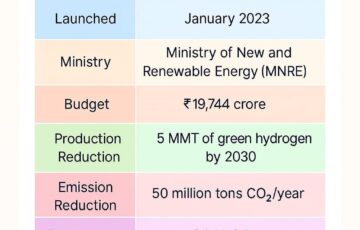DELHI HIGH COURT’S STANCE ON DELISTING PARTIES WITH RELIGIOUS NAMES
Why in the News?
- The Delhi High Court asserts that decisions on the legitimacy of parties with caste, religious, ethnic, or linguistic names should be within the purview of Parliament.
- Policy-making falls outside the judiciary’s domain, and such matters should be deliberated in the legislative forum.
Background of the Case:
- A petition was filed by lawyer Ashwini Kumar Upadhyay seeking the deregistration of political parties with names carrying religious connotations.
Court’s Position on Legislative Function:
- Limited Judicial Role: The High Court clarifies that it does not legislate and entering the policy domain is beyond its jurisdiction.
- Lawmakers role: Decisions about party names should be addressed by lawmakers in Parliament.
Upadhyay’s Plea and Legal Arguments:
Representation of the People Act (RPA), 1951:
- Upadhyay’s plea argues that names with religious connotations may adversely impact a candidate’s electoral prospects, violating the RPA, 1951.
- Political parties like Hindu Sena, All India Majlis-e-Ittehadul Muslimeen, and Indian Union Muslim League are cited as examples.
Concerns About Model Code of Conduct:
- The petition suggests that names with religious symbols or national emblems may be against the spirit of the RPA and the model code of conduct.
Court’s Counterarguments and Focus on Policies:
- Policy Matters over Names:
- The High Court suggests that the focus should be on understanding the policies of political parties rather than solely on their names.
- The court contends that voters consider a party’s policies, not just its name.
Response from the Center and Election Commission:
Government’s Stand:
- The Center, represented by its counsel, expresses a lack of intent to submit a response to Upadhyay’s petition.
Election Commission Policy Decision
- EC highlighted its policy decision from 2005 to avoid registering parties with religious names.
- Since then, no such party has been registered, according to the Election Commission.
The Delhi High Court reinforces Parliament’s role in deciding on the legitimacy of parties with names carrying religious connotations, emphasizing that policy matters should be addressed in the legislative sphere.




